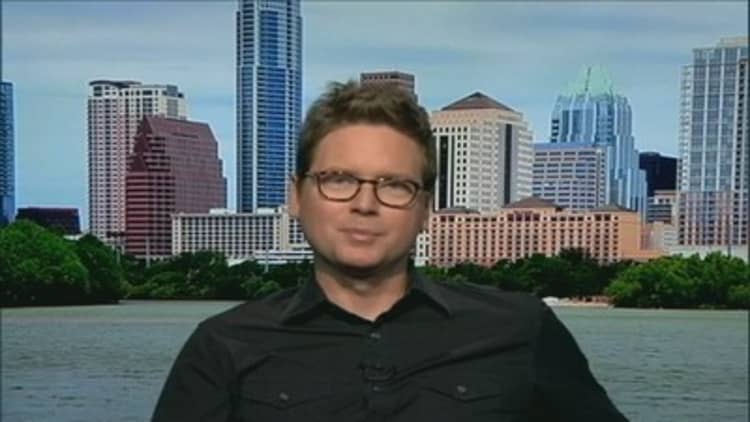
Investors shouldn't fear version 2.0 of the dotcom bust, Twitter co-founder Biz Stone told CNBC on Tuesday.
"We're living in a different time than the dotcom bubble of 2000 when you saw stratospheric valuations for things that seem to be or didn't look like they were of any value," Stone said Tuesday during an interview with "Squawk on the Street" anchor Carl Quintanilla.
The meteoric rises of companies such as Tesla Motors, Netflix and Stone's own Twitter have led some market observers to wonder whether investors should brace for a second-coming of the dotcom bubble of the early 2000s. Stone, however, believes companies in that era did not provide the same level of intrinsic value as the current crop of tech companies.
"Even though we're seeing big numbers now, they're nowhere near as big as back then," Stone said, citing the $164 billion purchase of Time Warner by AOL in 2000.
(Read more: Stock market in 'euphoria mode': Citi strategist)
Not only can tech companies provide more value to consumers and investors than in the past, they can also raise funding and reach users much more easily than before. In January, Stone helped launched a new Web app called Jelly, a social network based on questions and answers. The app drew more users during its launch than Twitter had after its first year, Stone said.
"It's just an absolutely different world launching a service today than launching Twitter," Stone said. "[With] Twitter we had to claw our way up over years. ... When you create something now, word spreads so quickly. It's amazing."
(Read more: Biz Stone's Jelly: The Instagram of questions)
Just before Stone's interview with CNBC, Twitter's service briefly went dark for "most users" Tuesday afternoon, around the same time Stone addressed a panel at the South By Southwest festival in Austin, Texas. Instead of the social network's iconic "fail whale," Twitter funneled affected users to a landing page with a "fail caterpillar" that Stone said he helped create.
"It's hilarious to me that they still use the same webpage that I made so many years ago," Stone told CNBC. "I have no idea what happened. I severely doubt it had anything to do with me. I think Twitter over the years has bought enough good will from people to suffer these types of things."
—By CNBC's Jeff Morganteen. Follow him on Twitter at @jmorganteen and get the latest stories from "Squawk on the Street."


